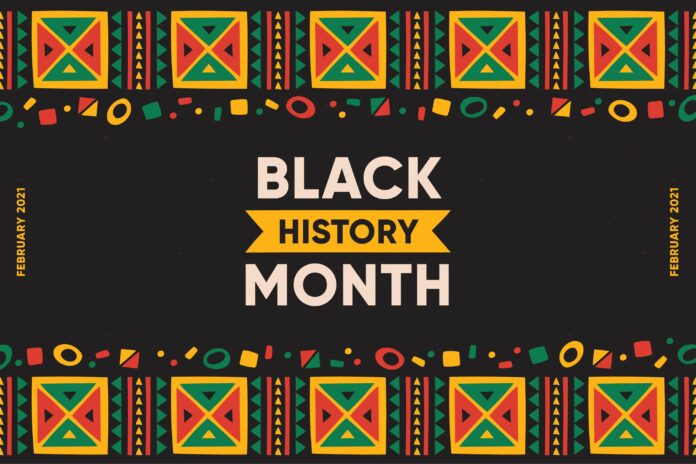Born in New Canton, Virginia, in 1875, Carter G. Woodson would never see the first Black History Month. The historian, best known for his 1933 book “The Miseducation of the Negro,” recognized throughout his studies the dearth of African Americans in the nation’s curriculum. To stem the tide and bring to the fore those lost voices, Woodson founded in 1915 the Association for the Study of Negro Life and History and launched the following year The Journal of African American History. Seeking to bring even more stories of African Americans to light, in 1926 Woodson founded the first Negro History Week. This was timed in February to coincide with Abraham Lincoln’s and Fredrick Douglass’s birthdays. It wasn’t until 1976 that President Ford extended the observation to a full month – one honoring the contributions of black Americans to this day. For Woodson, such associations and commemorations provided a kind of “real education” – one that “inspires people to live more abundantly, to learn to begin with life as they find it and make it better.”
This week and throughout February, the Museum is celebrating Black History Month with a host of new programs, initiatives and experiences:
- Uplifting the Black Family: NMAAHC Black History Month Social Media Campaign
NMAAHC’s social media platforms will explore The Black Family: Representation, Identity and Diversity, the theme for 2021 selected by the Association for the Study of African American Life and History, an organization created in 1915 by Carter G. Woodson—known as the Father of Black History Month. The daily, digital conversation will amplify the museum’s Black History Month programming and will share century-old stories, dynamic photographs and items in its collection and family history resources. The public can view this year’s Black History Month social media campaign by following @NMAAHC on Twitter, Facebook and Instagram. - Tuesday, Feb. 2; 7 p.m. to 8:30 p.m. ET
Historically Speaking: 400 Souls—A Conversation with Ibram Kendi and Keisha N. Blain
Admission is free; however, registration is required at https://nmaahc.si.edu/events/upcoming. - Thursday, Feb. 4; 7 p.m. to 9:15 p.m. ET
A Seat at the Table: Prison Reform and Restorative Justice
Labor economist, author and political commentator Julianne Malveaux will moderate a discussion with Juleyka Lantigua-Williams, journalist and media producer; Marlon Peterson, activist, author and Atlantic Racial Equity Fellow; and Paul Gardullo, museum curator. After the presentation, audience participants will have the opportunity to share their stories and ideas with one another at their virtual table on how the public may address prisons in favor of alternative forms of restorative justice. A Seat at the Table is an interactive program for participants to consider challenging questions about race, identity and economic justice over a meal. Registration for the program must be completed by Jan. 30 to receive a meal kit to prepare at home for the program; select food options are available to participants. To purchase tickets and to learn about the latest installment of A Seat at the Table, visit https://nmaahc.si.edu/events/upcoming. - Friday, Feb. 5; 11 a.m. to 11:45 a.m. ET
NMAAHC Kids: Joyful Fridays (program occurs every Friday)
Joyful Fridays welcomes children every Friday in February to create art that celebrates Black joy, history and culture. This special program is inspired by the museum’s Joyful ABC’s activity book series, which features activities, museum objects and new words based on characteristics featured in the book, A is for All the Things You Are: A Joyful ABC Book. In its first installment, February’s Joyful Fridays will focus on activities inspired by the themes of letters C–F: Creative, Daring, Emotional and Fair. To prepare for the activity, registered participants will receive a list of accessible supplies needed, recommended books and links to online resources in the museum’s early childhood Learning Lab collections the Monday before each program. Participants can prepare for this program series by building an at-home creativity kit. This program is for children ages 4 through 8. Admission is free; however, registration is required at https://nmaahc.si.edu/events/upcoming. - Saturday, Feb. 6; 12 p.m. to 1:30 p.m. ET
The Robert F. Smith Family Center Presents Courthouse Research: Using Probate Records to Research Enslaved Ancestors
Author, teacher and certified genealogical lecturer LaBrenda Garrett-Nelson will share best practices in using probate and other estate records to identify potential slaveholders. This lecture will help prepare participants to break through the 1870 U.S. Census brick wall after they have identified the names of ancestors born during slavery and now find themselves stalled in their research. Admission is free; however, registration is required at https://nmaahc.si.edu/events/upcoming.
Story Credit: National Museum of African American History
Photo Credit: Pikisuperstar



































